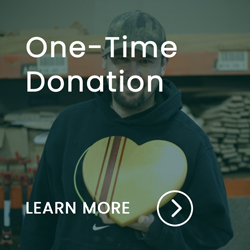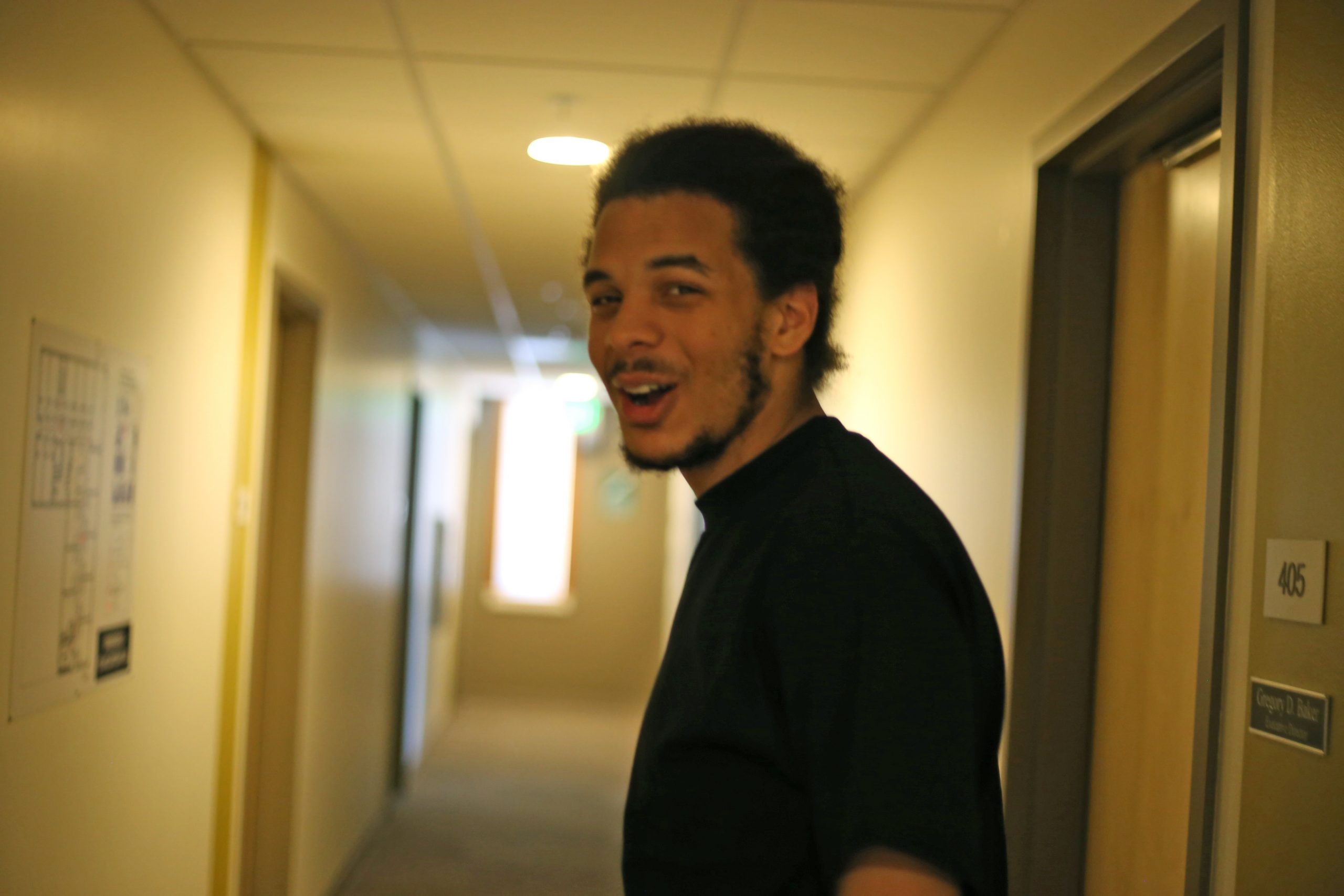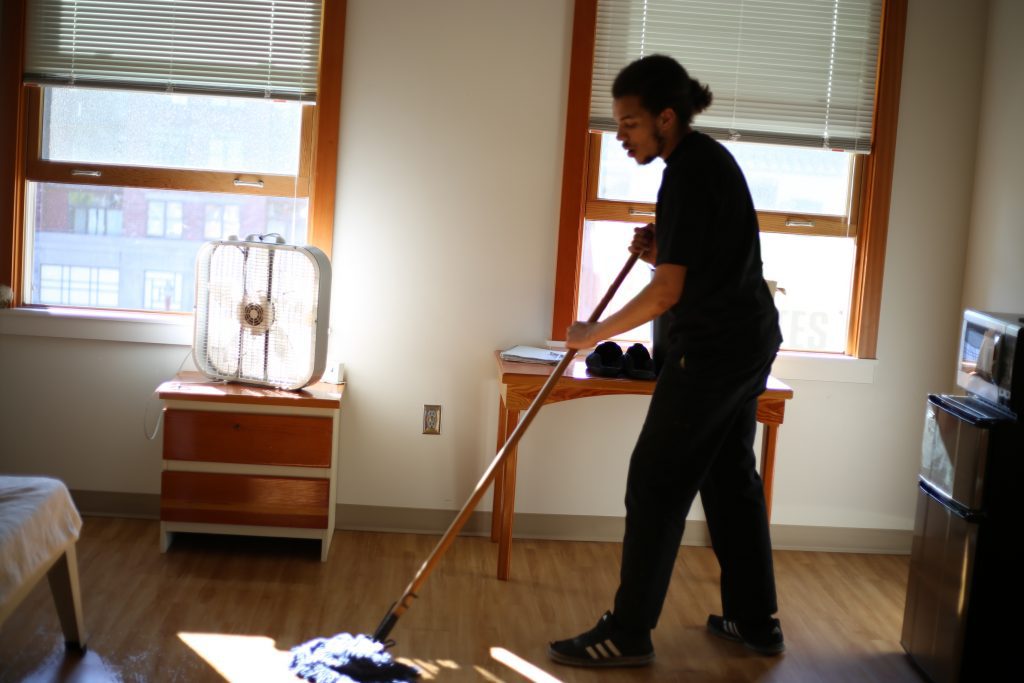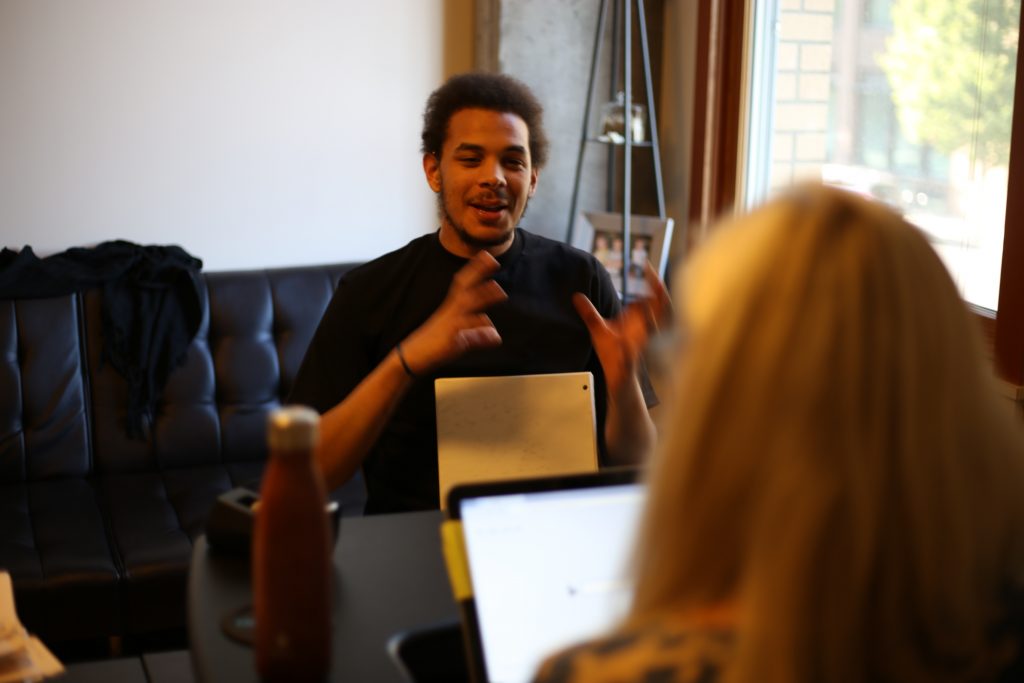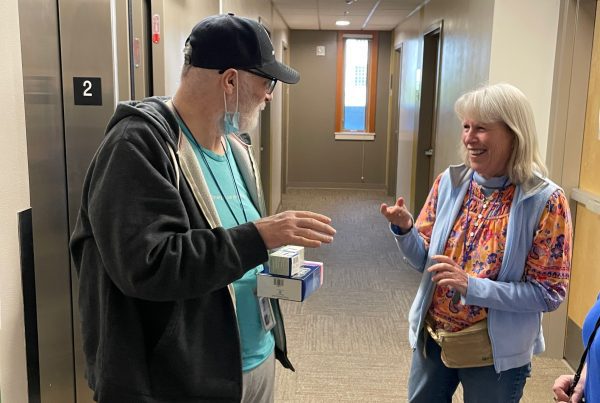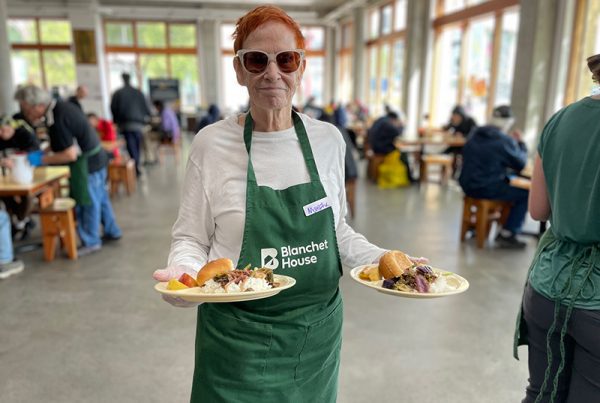Youth homelessness is often invisible to the public eye. Homeless youth must struggle to secure the basic human needs of food, shelter, and community which forces them to live in survival mode. This can often put them in unsafe situations and run-ins with law enforcement.
By Julie Showers
After successfully graduating from JobCorps‘ Culinary Arts program in Estacada, OR, teenage Christian (last name withheld) found himself homeless. He was estranged from his adoptive parents who a few months prior gave him the choice of leaving their home or joining JobCorps.
Prior to joining JobCorps Christian was struggling to stay in high school. He was smoking weed daily and often argued with his adoptive mom. As a bi-racial student, he felt that the school administration picked on him and treated him unfairly. Like many homeless youth, Christian experienced trauma as a young child when he was removed from his biological mom’s home for physical abuse. With no other idea of what to do, the JobCorps’ Culinary Arts program was attractive because he felt that gaining cooking skills would allow him to work anywhere in the world.
Now that the program was over he had nowhere to go.
He called a friend from the program who offered to let Christian sleep on his couch in Gresham, OR, while he looked for work. Christian easily found a job washing dishes at a prestigious athletic club in downtown Portland with a $6,000 initiation fee. He was grateful for the steady work and felt he would be able to save money for his own apartment. However, soon after he landed the job his friend dealt him a blow. Christian would need to move out because his friend’s girlfriend would be moving in.
With nowhere to go and no money for an apartment, Christian decided to set up a tent in an empty lot.
Working While Homeless
“I was still going to work every day. No one at my work knew I was homeless,” Christian recalls. “Luckily, I was able to shower at work. I made a joke to the people there about wearing the same clothes every day.”
Living on the outskirts of town added an additional challenge because the cost of train fare to commute to his job took away from the money he used for food. This led Christian to evade the train fare and sneak rides to work. He began to receive fare-dodging tickets and fines.
“The stress of hiding that I was homeless got to me so I eventually quit the job,” he said.
Christian often left his belongings in the tent while he went in search of food and services. It wasn’t long before they were stolen.
“My bag with my IDs and bank card got stolen. I had nothing. No phone,” he remembers. “I was hungry. I started stealing food from stores. Things like Pop-Tarts and eggnog. I got caught a few times. One time a cop had me in handcuffs in the back of the car and asked me why I was stealing.”
“Good” Kids Can Become Homeless Too
Christian had no criminal record so the police officer questioned what was going on with him. Why was a teen stealing food?
“‘You’re not a bad kid. What’s going on?'” Christian recalls the officer asking him. “I said I was hungry and didn’t have any money.”
The police officer told Christian about Blanchet House, a free cafe in Old Town Portland where he could eat. Christian was shocked that such a place existed. He began eating at least one meal a day there but had to illegally ride the train to get there because he couldn’t afford the fare. Free food met one of Christian’s needs but he was still without a home.
One night in December of 2017, Christian was sleeping in front of a school having lost his tent to thieves. It was freezing cold out and a woman called the cops thinking he may be dead. A police officer answered the call and pulled up Christian’s criminal record. He saw a lot of failure to appear tickets from stealing food and jumping the train. The officer took Christian to jail on a Friday. On Monday a judge set a court date.
“It’s a cliché but I realized jail is no place that I want to be. I’m talking to guys who are in for beating their girlfriends, caught with guns, and caught with drugs. I’m thinking to myself, ‘I’m not this guy.’ When they’re asking me why I’m in jail I’m saying, ‘Um, I stole some eggnog and failed to appear,’ Christian said.
Hunger For Housing
Christian appeared in front of the judge. They read his charges and told him he would need to do community service and pay fines. Christian explained that he had no money for fines.
“‘You can give me community service but how am I going to get there?'” Christian asked the judge. “‘You can give me a fee but how am I going to pay for it? You must of run into this before? When someone is down on their luck. What can I do? I’m trying to get off the streets, get back up, and get my life figured out.'”
The judge understood and agreed to let Christian work with a social worker instead of serving more jail time for unpaid fines. The court-appointed social worker told Christian that it sounded like he was experiencing a lack of housing, which is not a crime.
“Here’s what I’m going to do for you,’ she said,” Christian recalls. “You’re going to call Blanchet House. They have a drug and alcohol program but they also have housing. They might allow you to live there.'”
Transitional Housing to End Youth Homelessness
Christian was accepted into Blanchet House’s eight-month transitional housing program which provides free room and board with case management. He had been eating meals in the free cafe but wasn’t aware that they also had a housing program. The unique program helps residents regain self-worth and soft job skills by requiring kitchen work during the first 90 days of their stay. After that, residents can look for work outside the house but continue to receive housing and support.
“I was able to get a full-time job washing dishes at a restaurant that I really like. It feels good,” he said. “I’m saving every dollar I earn for a studio apartment.”
Christian was able to save money for an apartment and exit the transitional housing program feeling secure. Instead of focusing on where he could find food, he had the security to plan for the future.”
During times of crisis and chaos, like experiencing homelessness, it’s common for us to enter a state known as survival mode. In this mode, our survival instincts prompt impulsive reactions aimed at self-preservation. The process of recuperating requires time, stability, and support. To end youth homelessness, we need free housing options and support to give people a chance at success.














